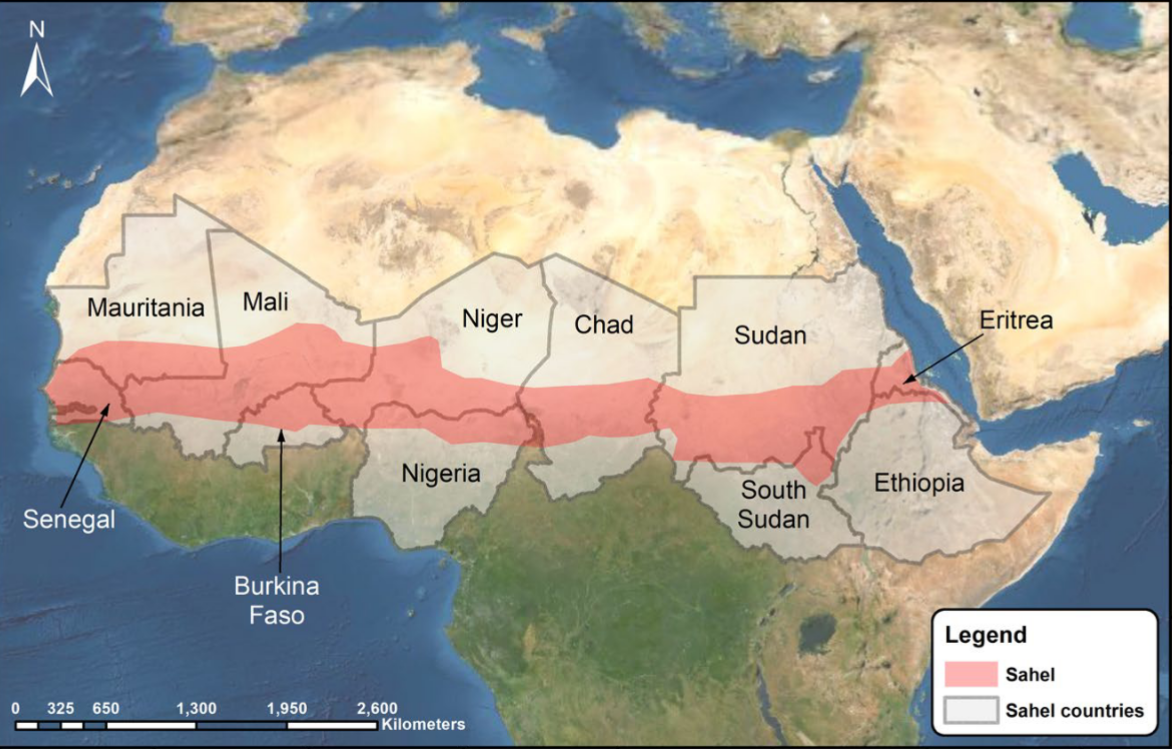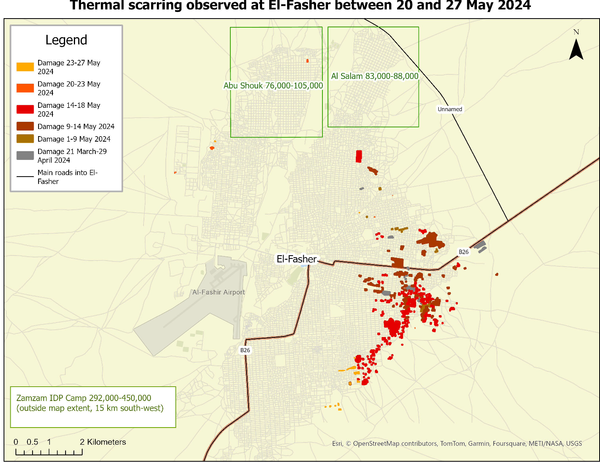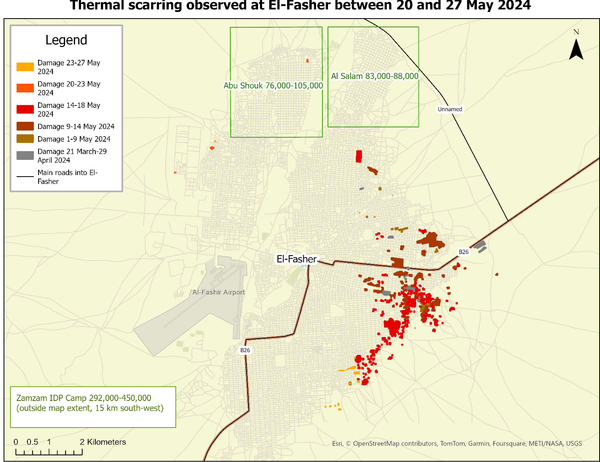Why the Sahel Actually Matters (Possibly To You, Too)

By Jeremy Lichtman
We've published several stories lately on recent events across several countries in the Sahel region. Speaking with a colleague this week, he noted that matters in that region are of exceedingly little interest to the news-reading audience. This is in no way a criticism of his comment. Weeks or even months can go by between stories on this topic in the press. By that, we mean the entirety of the international press. In light of that, we think it is worthwhile explaining why this region actually matters, not just its endless military coups, or its ongoing human tragedies, but globally.
Crucial Sahel Facts
The Sahel runs in a broad band across Africa, from Mauritania and Senegal on the Atlantic Ocean to Sudan and Eritrea on the Red Sea. It covers most or all of the territory of eleven countries, most of which are ranked poorly on the Economic Development Index. Most of these are unstable, prone to frequent military takeovers, and religious or tribal-tinged insurrections. The region is also vulnerable to drought, which can sometimes last centuries. It is also rich in minerals. However, in some of these countries, this mineral wealth is poorly explored, due to the continual political and economic uncertainty.

This mineral wealth is the primary driver for both historical and present interventions by outside countries (often causing considerable misery). Hence, geopolitical rivalry. Today, this rivalry takes the form of competition between Western countries (particularly France and the US) vs Russia, China, and Iran, for the favor of regional governments. Many countries in the Sahel have foreign troops present, variously supporting recognized governments or rebellions against them.
Why the Sahel Matters to Europe and Beyond
The Sahel countries run in a band immediately south of the countries that line the southern coastline of the Mediterranean. Morocco, Algeria, Libya, and Egypt all border directly on this troubled region. That trouble occasionally spills over to the north. This may cause broader consequences.

There have been several historical instances where the majority of the southern coast of the Mediterranean has seen complete political collapse. The most recent was in the 1500s. This led to that coastline becoming a haven for piracy. This caused considerable harm to trade across the Mediterranean Basin. Continual raids by pirates led to the complete depopulation of parts of the coastline of Spain and Italy. It took more than a century, as well as several major sea battles, to stabilize this area.
While large-scale, modern-day piracy in the area seems improbable, a much more likely scenario would be a worsening of the ongoing sea-borne refugee crisis. This could become worse than that seen during the peak of the Syrian civil war. The effect on Southern Europe would be similar in its economic and humanitarian costs.
Given the current instability of the Sahel, the ongoing battle for geopolitical influence, the lure of its mineral resources, and the potential for a crisis that could ultimately affect Europe, we believe that the world should be paying closer attention to the region and its circumstances.




